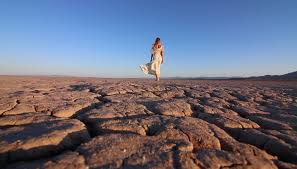
After two centuries of exponential growth, it is inevitable that the world population will experience a sharp decline by the end of this century. This is the conclusion of a study published in World and conducted by William Rees, author of over 150 studies on socio-economic growth and development and the father of the expression “ecological footprint”.
According to Rees, our unsustainable consumption of the earth’s resources and exponential population growth has pushed modern society into a state of “advanced overpopulation.”
All kinds of animals are naturally predisposed to grow and reproduce until their habitat reaches the point of destruction. When this happens there is a lack of food, the spread of disease or an increase in prey. The population then declines, resources become available again, and the habitat is repaired, allowing the cycle to begin again.
But this is not exactly the case with humans. The beginning of the exploitation of fossil fuels allowed an increase in food and resources, causing a consequent exponential increase in the world population, which in the last 200 years has gone from one to eight billion.
“We have adopted a self-sabotaging way of life in which the limited resources that have allowed our industrial society to thrive will sooner or later be insufficient,” explains Rees.

The end of resources and continued population decline can be problematic: poverty, widespread unemployment, falling GDP, falling wages, overburdened social services and disrupted supply chains are some of the consequences we may face. . In the worst case scenario, the entire society could collapse. “Billions of survivors may have to go back to living as they did during the Stone Age. If that’s the case, it won’t be city dwellers who adapt, but populations used to a poor rural life,” explains Rees.
Clearly, Rees’ vision is far from optimistic, but should we worry about extinction? Fortunately, the expert says it’s an “impossible” scenario, given the technological advances we’ve made. However, the negative consequences, climate chaos, lack of food and other resources, civil unrest, wars for resources, can make it difficult for an advanced civilization to establish itself on a global level, he concludes.




















